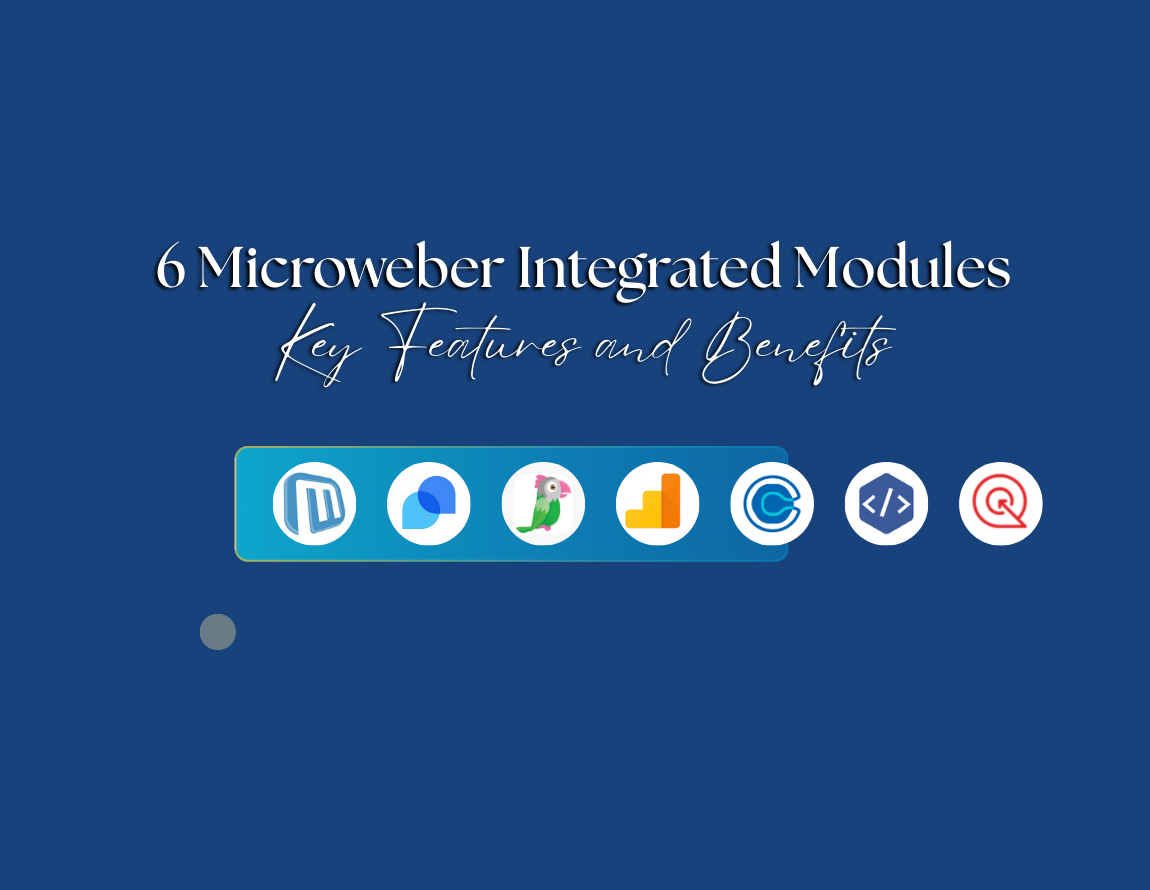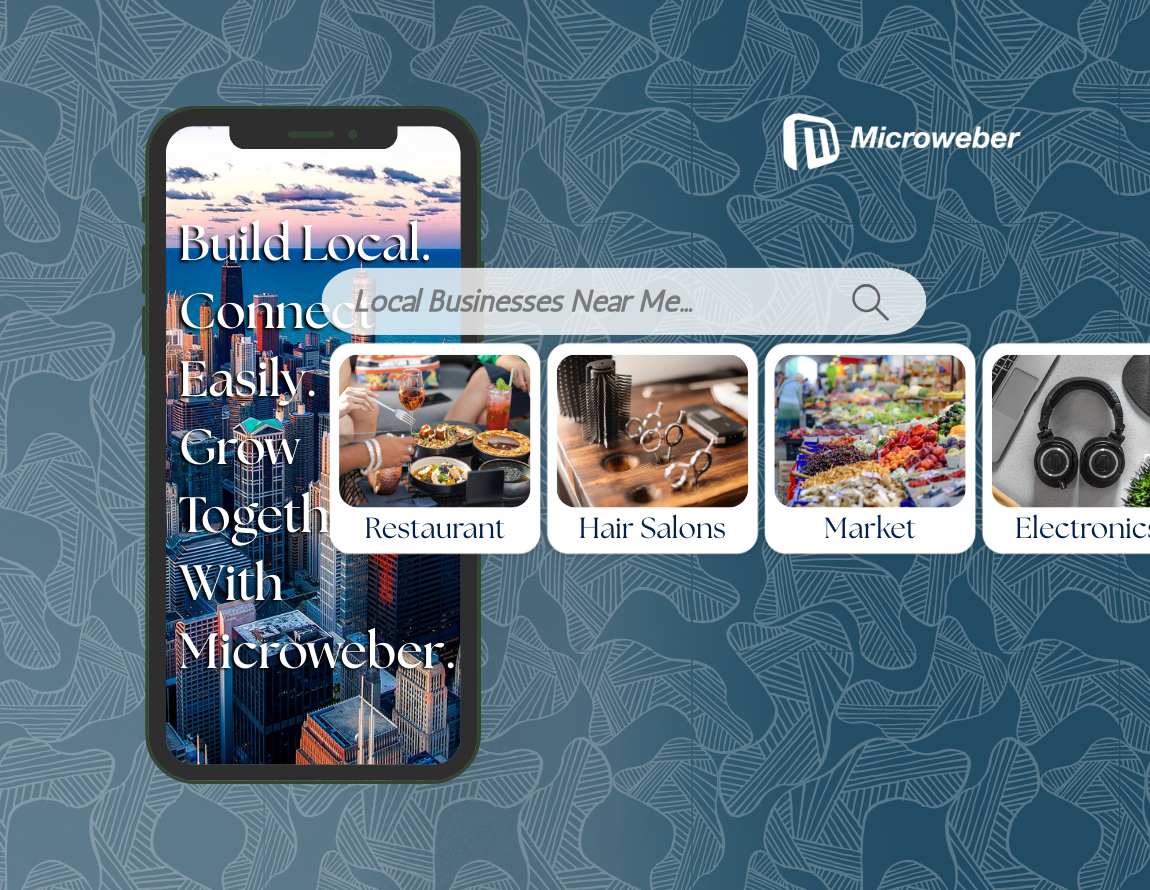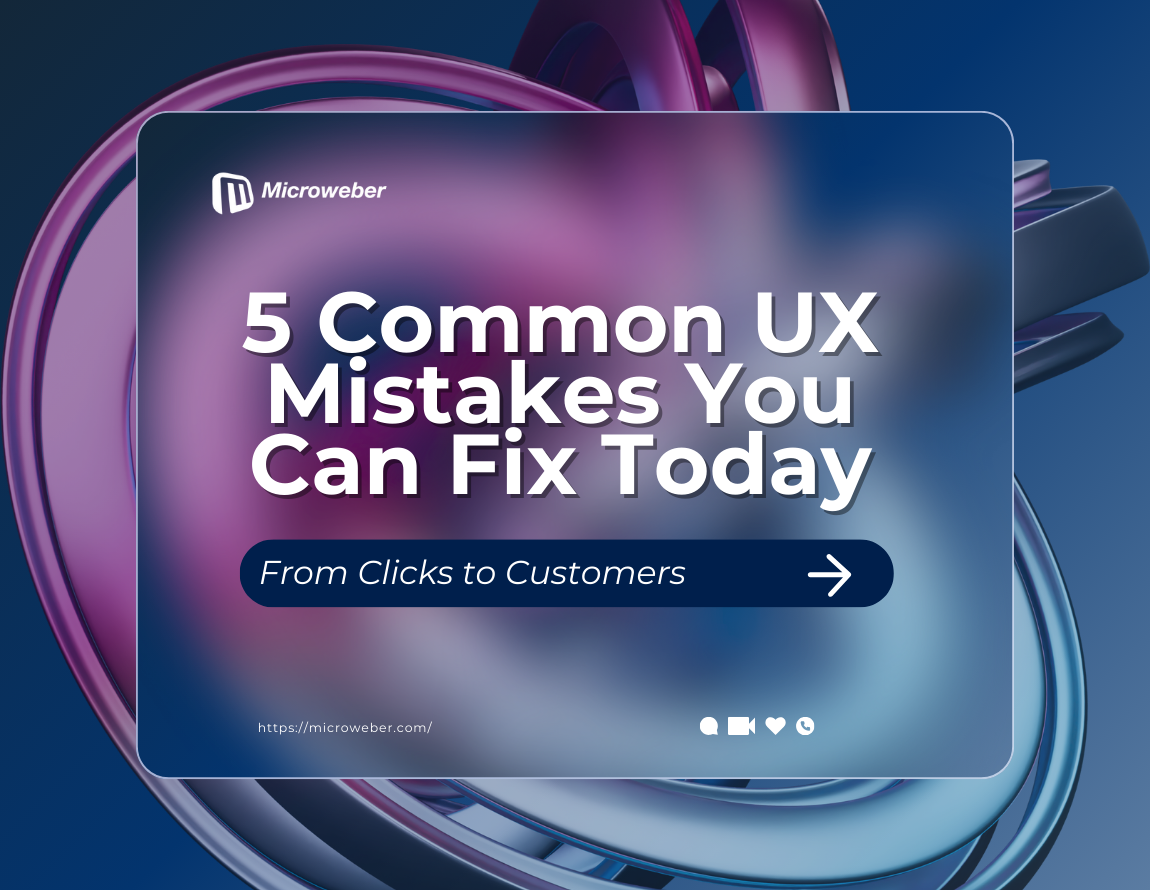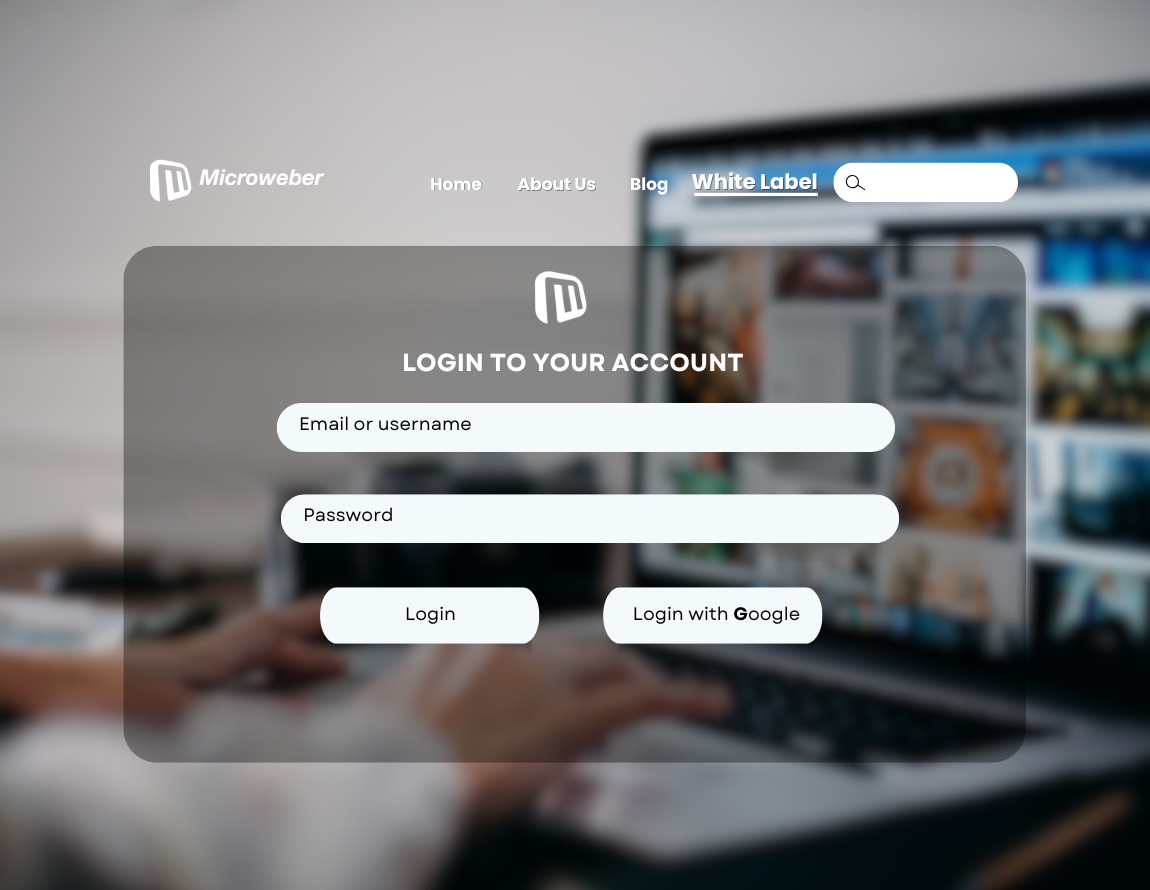Content or Customers? Why Open Source CMS and CRM Aren’t the Same
Posted on: March 20, 2025 Updated on: March 20, 2025 by Nada Allam Today's business in cyberspace demands effective content management and customer management to do business smoothly.
Today's business in cyberspace demands effective content management and customer management to do business smoothly.
CMS (Content Management System) and CRM (Customer Relationship Management) are two essential solutions that play complementary though distinct functions.
As one keeps busy creating and structuring content, the other creates more substantial customer relationships. Having an effective system -or both together- can be a business turning point.
But what can you do to find out what suits your business best? Get to know their differences and see why Microweber, being an open-source CMS with integrated e-commerce capabilities, bridges content and customer management.
Differentiating Between CRM and CMS: What You Need to Know
Companies must have control over their content and customer interactions to have a successful web presence.
CRM and CMS systems cater to such requirements but with varying priorities.
Defining CRM: The Backbone of Customer Relationships
CRM software allows businesses to maintain customer relationships, track sales, and make their marketing more automated.
By using lead management, email campaigning, and tracking capabilities, CRM software provides businesses with the mechanism to build good customer associations.
Understanding CMS: Powering Your Website Content
CMS solutions focus on website management, while they provide functionalities to structure, edit, and build content.
A good CMS streamlines website page design operations, blogging, and multimedia content management without needing technical coding skills.
Key Differences Between CRM and CMS
While both systems exist to facilitate business processes, they have very distinct functions.
CRM exists to manage customer relationship management while CMS exists to manage content and website management.
The key areas of contrast are:
- CRM organizes customer information, tracks interactions, and streamlines marketing.
- CMS handles website design, content publishing, and user interface.
- Businesses often integrate both systems to render their operations more effective.
Microweber: A Comprehensive Open-source CMS with E-commerce Features
Microweber is an emerging open-source CMS with e-commerce capabilities, making it a good fit for online shops.
Although it does not have complete CRM functionality, it still has the functionality to operate an online shop successfully.
What Sets Microweber Apart in the CMS Landscape?
Microweber is different from most CMS systems because it integrates a website builder with commerce functionality.
It is not only simple to use but also accessible to beginners and professionals due to the drag-and-drop feature.
Exploring Microweber’s E-commerce Capabilities
Microweber is easy to use to create online stores. Product management, integration with a shopping cart, and secure payment facilities make Microweber a robust solution for businesses seeking to sell their products online.
User Experience: The Intuitive Interface of Microweber
Microweber's biggest strength is ease of use. Its interface is highly user-friendly and provides easy management of content, order tracking, and store customization.
This is Why Open-source Matters in CMS and E-commerce
Open-source options are more flexible and customizable at lower costs. The companies prefer it with community-supported development and enjoy the freedom to customize the software according to their needs.
Benefits of Open-source Software for Flexibility and Customization
Unlike proprietary software, open-source CMS systems like Microweber give users the ability to edit code at their whim, add new features, and implement third-party software at their discretion.
Cost-effectiveness: How Open-source Solutions Save Money
Since open-source software is either free or cheap, businesses pay no licensing fees while still being able to access good website management software.
Scalability: Adapting to Your Business Growth with Open-source Tools
As businesses grow, they need solutions that can grow with them. Open-source CMS solutions can be customized to expand with business needs, offering long-term viability.
Key Features of Microweber That Enhance E-commerce Functionality
Microweber is loaded with features to make e-commerce operations more streamlined. Starting with the personalization of a website to security.
Integrated E-commerce Solutions within Microweber
Microweber includes a built-in store that does not require additional plugins. This reduces store management and offers a more convenient user interface.
Customizable Themes and Templates for Brand Identity
Companies can select from a number of templates or create bespoke themes to fit their brand and consequently have a distinct online image.
Robust SEO Tools to Boost Online Visibility
Search engine optimization (SEO) is vital to generate organic traffic. Microweber offers SEO-friendly attributes to boost rankings and attract customers.
Security Features to Safeguard Your Online Store
Security is paramount with everything being done online. Microweber provides minimal security like SSL and a secure payment gateway.
Membership and Subscription Management
For businesses with subscription services, Microweber offers membership management capabilities to make customer subscription management more convenient.
Integrating CRM with Microweber for Optimal Results
While Microweber offers some of commerce's core functionalities, businesses that require full customer management must integrate it with a CRM.
The Importance of CRM Integration for E-commerce Success
The CRM software enhances customer relationship management and automates marketing and sales tracking. Integrating a CRM with Microweber assures a more efficient business procedure.
Top CRM Solutions Compatible with Microweber
Firms can integrate Microweber with top CRM platforms like HubSpot, Zoho CRM, and Salesforce to manage their customers more effectively.
Enhancing Customer Relationships through Automation and Data Analytics
Firms can leverage automation software and analytical capabilities with integration to improve customer engagement and tailor selling approaches.
Choosing the Right Tools for Your E-commerce Strategy
Businesses have to select the appropriate tools to build a lucrative online store. Knowing what to do with a CMS and/or a CRM is key to expansion.
When to Use a CMS, When to Use a CRM
If content management and website management are your primary concern, then your best bet would be a CMS like Microweber.
If customer relationship management is your concern, your best bet would be CRM integration.
The Advantages of Combining Microweber with Third-party CRMs
Using Microweber with integrated tools, such as CRM tools, enables businesses to efficiently maintain content and customer relationship management to create a consistent online presence.
Best Practices for Integration and Usage
Along with integrating CRM and CMS, businesses have to make provision for efficient information flow, automation of business operations, and customer engagement policies.
Getting Started with Microweber: A Step-by-Step Guide
Setting up your online store using Microweber is a hassle-free and streamlined procedure even for users without technical knowledge.
The user-friendliness of the platform as well as the features it supports automatically make business through e-commerce accessible and simple to establish.
Here's a step-by-step procedure to start with.
Setting Up Your Microweber E-commerce Store
Begin by signing up at Microweber and selecting a template that will best represent your brand.
Establish primary store settings like currency, taxation percentages, and delivery options to have a good starting point to build your business on.
Customizing Microweber for Your Brand
Make your store stand out with customized layouts, fonts, and colors. Use Microweber's drag-and-drop builder to create a beautiful and user-friendly website that best suits your brand.
Choosing and Integrating Payment Gateways
You must have secure payment gateways like PayPal, Stripe, or other payment gateways integrated to allow users to have several payment options with seamless checkout.
Launching and Testing Your E-commerce Site
Pretest your store before opening it to your target audience. Test mobile responsiveness, SEO options, and everything else to perfection.
Order test products and obtain feedback to make your user experience perfect before you open your business to the general public.
You can find a detailed guide here: Step-by-Step Guide: Create Your Own One-Page Website with Microweber.
Future-proofing Your E-commerce Business with Microweber
You must constantly evolve to remain competitive in e-commerce. Here's how to make your online store future-proof with Microweber.
Adapting to Evolving Market Trends Using Microweber
Stay competitive through proactivity with upcoming e-commerce trends and utilizing them to the fullest of Microweber's adaptability.
Community Support: Leveraging Open-source Networks for Growth
Be part of Microweber's knowledge-sharing, aid, and best-practice community to let your business grow.
Continuous Learning: Resources for Optimizing Your Microweber Experience
Take advantage of online tutorials, documentation, and forums to extend your Microweber abilities.
Conclusion
A CRM and a CMS have a vital function in helping businesses excel online, as the first deals with content management and the other to create customer relationships.
Microweber is a robust open-source CMS with built-in e-commerce functionalities with a full-fledged solution to help businesses navigate their online business.
When coupled with a CRM, businesses can create an uninterrupted workflow that connects content management and customer engagement.
Are you ready to advance your business strategy? See here's how Microweber and CRM solutions integrate to drive business expansion.
FAQs
What is the difference between CRM and CMS?
CRM is used to manage customer relationships while CMS is used to deal with website content.
What are the main advantages of using Microweber for e-commerce?
Microweber is designed with a user-friendly interface, integrated commerce capabilities, and open-source adaptability.
How can Microweber enhance my online marketing efforts?
Microweber provides content management and integration with SEO tools and e-commerce functionalities.
Is Microweber suitable for non-technical users?
Indeed, its drag-and-drop editor makes web building accessible to users without coding knowledge.






